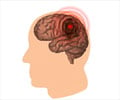
Researchers found that patients treated by the anticoagulation service had a favorable response to alternative anticoagulant drugs three times faster and were 32 percent more likely to receive proper dosage than patients who were treated with the same drugs by the patient’s primary medical team.
This is the first time researchers evaluated the impact of the anticoagulation service on the efficiency and safety of using a different class of anticoagulant drugs called direct thrombin inhibitors for treating patients with HIT, in which a patient’s platelet count drops after they receive the anticoagulant drug heparin.
The study is to be published online Tuesday at www.theannals.com in the February issue of The Annals of Pharmacotherapy.
“Based on our findings, we believe this type of service is a valuable strategy for improving the quality of care of patients with HIT,” says James Kalus, PharmD, senior clinical pharmacy manager at Henry Ford and senior author of the study.
It is estimated that up to 3 percent of patients exposed to various forms of heparin may develop HIT, which is commonly treated in hospitalized patients. If a decrease in a patient’s platelet count is not treated quickly and efficiently, serious blood clots can develop.
Advertisement
Dr. Kalus says the study’s findings “represent real improvements in quality of care.”
Advertisement
The study was funded by Henry Ford Hospital.
Source-Medindia









